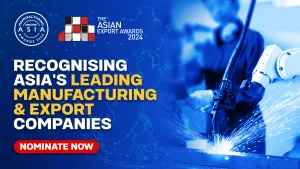
Thailand's auto parts and accessories export industry reaps $15.6b in 2022
Approximately 2,200 manufacturers cater to the after-market or replacement market.
Thailand's automotive industry has established itself as a major player in the global market, with auto parts and accessories accounting for a significant portion of its exports. In 2022 alone, the industry earned a total of $37.6b, with auto parts and accessories contributing $15.6b to the figure.
Thai governments have successfully attracted major automotive brands, such as Japanese, European, and US manufacturers, to set up production and export bases in Thailand. These brands have been accompanied by a cluster of parts suppliers, which have contributed to the growth of the industry.
READ MORE: Automotive emerges as the most important growth driver for semiconductor
The country has also successfully persuaded Chinese EV makers to set up their regional production bases in Thailand, including brands BYD, MG, and Great Wall Motor. At least 50 Chinese EV auto parts suppliers have established offices in the country.
Close to 500 mostly foreign-owned firms supply the original equipment manufacturers (OEM) market segment in Thailand, which is dominated by Japanese brands.
Capturing Japan's automotive manufacturing relocation is partially due to the country's large domestic market for one-ton pickup trucks, which account for about 50% of domestic sales. Thailand's government has also launched tax schemes to promote small, petrol-efficient eco-cars, which have come to dominate the domestic market for passenger cars and are a major export item. These policies have created a huge domestic and overseas market for OEM and After Market parts, which have performed well even during the pandemic.
The Thai Auto Parts Manufacturing Association (TAPMA) believes that there is still plenty of time for the auto parts industry to adjust to the EV revolution. Whilst EVs use only 1,200 parts compared to the 30,000 parts used in internal combustion engine vehicles, the association's president, Sompol Tanadumrongsak, believes that EVs will not reach 30% of the market for another ten years, leaving plenty of time for the After Market to continue to thrive.
"Normally, when the OEM market is not good the After Market is always good," said Tanadumrongsak.



















